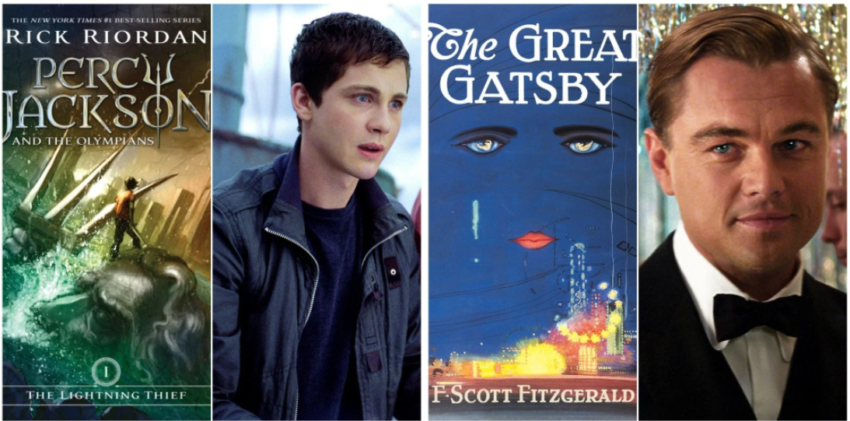By Riley Gonzales, Staff Writer
Hearing about a favorite book being adapted for the screen can produce mixed emotions: excitement over getting to see the story come to life, and dread over whether or not it will turn out well. There have been both disasters and triumphs in translating page to screen. Are books always better than their movie counterparts, or can a show turn out better than its source material? River Hill students had opinions to share.
Season two of Bridgerton and the slightly newer Heartstopper, which were released on Netflix this spring, are both recent adaptations that received enthusiasm from viewers. Junior Marley Cosgrove expressed her enjoyment of the latter, explaining, “It was a very good adaptation from the book. They strayed a little bit but I like the new stuff that they added, it still added to the story without getting too far from the plot of the book.”
Junior Emily Fuentes shared a movie that she thinks also stuck to its source material well: The Hunger Games. She described, “I really liked it because I think it stayed really really true to the books. It was really accurate, even with the casting and the plotline.”
A lot that goes into an adaptation is the casting. While some are concerned with how similarly the actors look to the characters written on the page, others want to see actors that accurately reflect the demeanors of their favorite characters on screen. It seems that The Lord of the Rings movies were able to do both, since multiple students had good things to say about it.
“I think the casting for The Lord of the Rings was done really well,” commented Marley, “The characters in the movies looked a lot how I envisioned them when I read the books.”
Junior Dora Zhou agreed with her, honing in on a specific character, Aragorn, who was played by Viggo Mortensen in the movies. Dora liked his casting because “I thought he played the part really well, and I think it required a lot of physical stuff and I think he was really good at that, too.” She referred to the actor’s stunt work, and the great amount of effort that was required to play the role.
It can be disappointing for some to see a series that strays too far from the original story, but adaptations rarely follow their source material word for word. It’s difficult to fit everything that a book has into a movie, but it can also be beneficial for TV shows and movies to add their own insight. As junior Emma Orlando put it, “I think that the interpretation, the adaptation, exists for the interpretation of the director. So it shouldn’t just be a carbon copy.” It can be refreshing and exciting for fans to see adaptations do something original with the books, and when it’s done well, it can enhance the story.
However, book readers would still like to see accurate depictions on screen. Junior Anika Nair commented, “Imagine how much of a fanbase they build just from producing a show that was already a book, but if they ruin it, they’re going to lose so many fans and they’re going to disappoint so many people.”
As for whether adaptations are ever better than the original, students have differing opinions. Anika prefers movies most of the time, elaborating, “I think they’re usually better. Even if they’re not exactly like the books, I still think they’re good movies on their own.”
Others, like Emily Fuentes, prefer the originals over the adaptations. Emily explained, “I think that the books are always better than the movies, just because you have so much more creative freedom in your own mind when you read books.”
In the end, though, the answer to this question may not be so black and white. As Dora puts it, “It depends on which one you watch or read first. [T]he one you see first is where you build the whole world in your mind off of, so the one you see second will probably contradict that.” In addition, some simply prefer movies in general over books, or vice versa.
Either way, movies, TV shows, and books all serve the same purpose: to entertain an audience. Whichever one is preferred, one can still enjoy the idea behind both.

